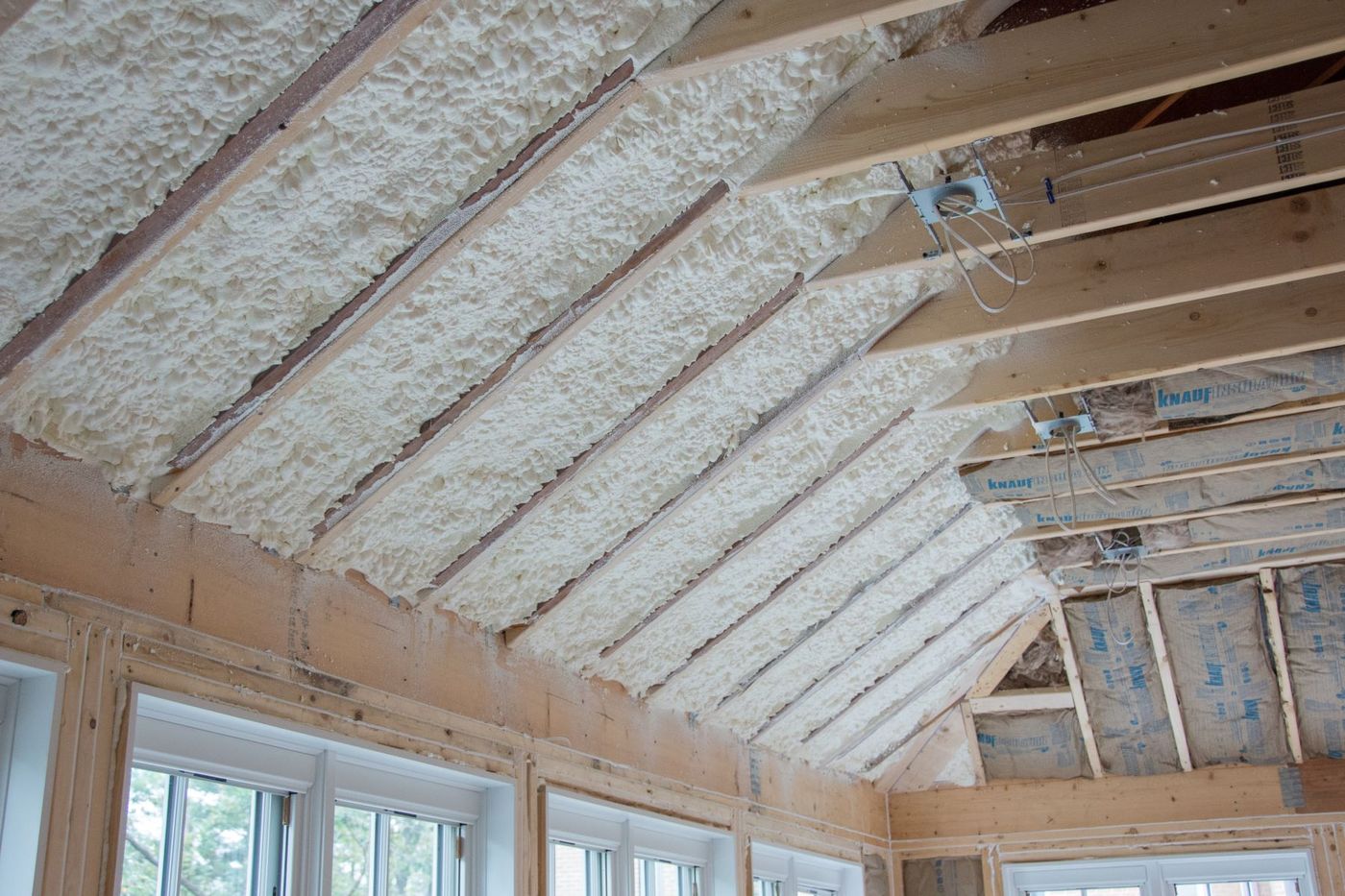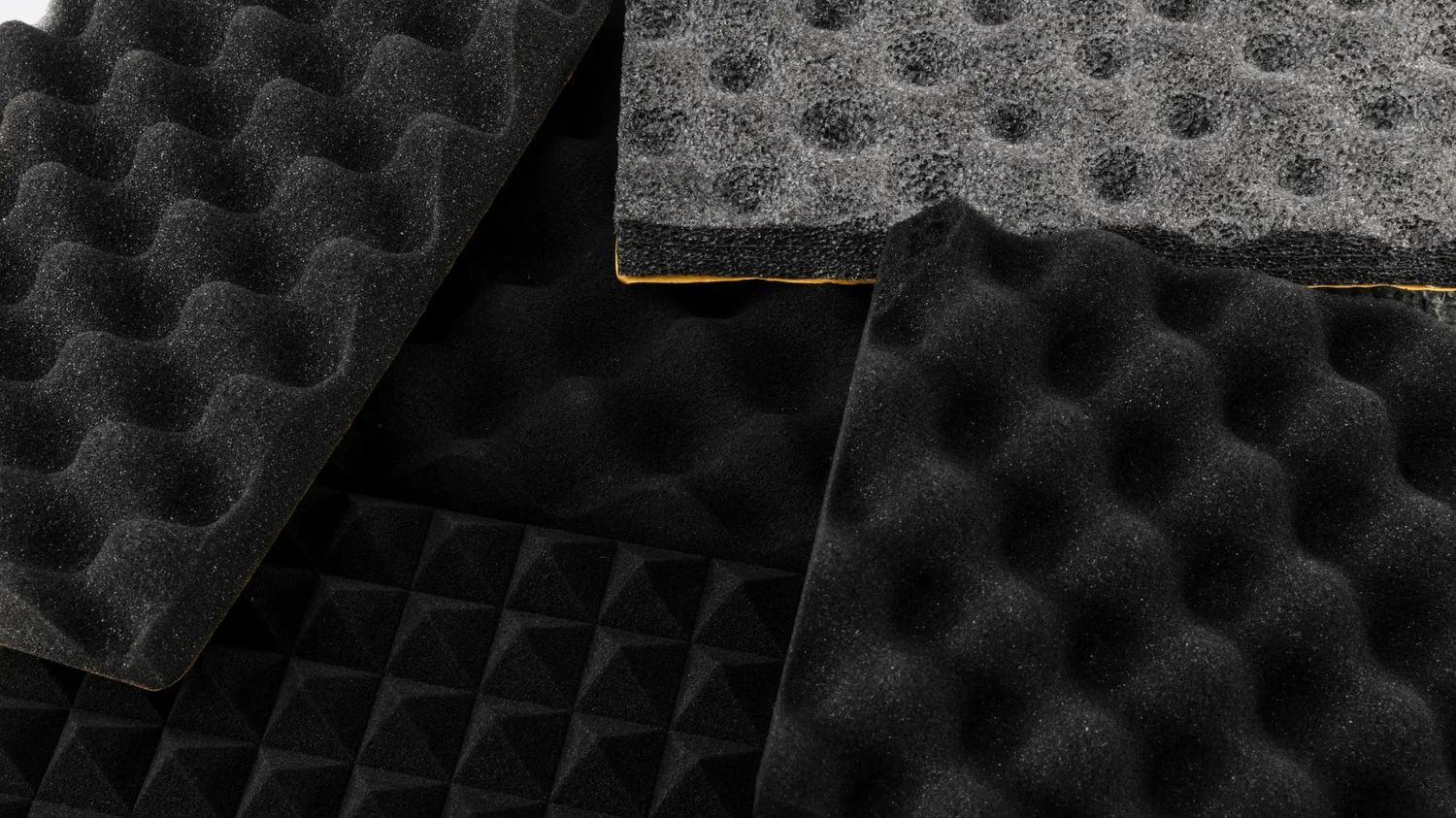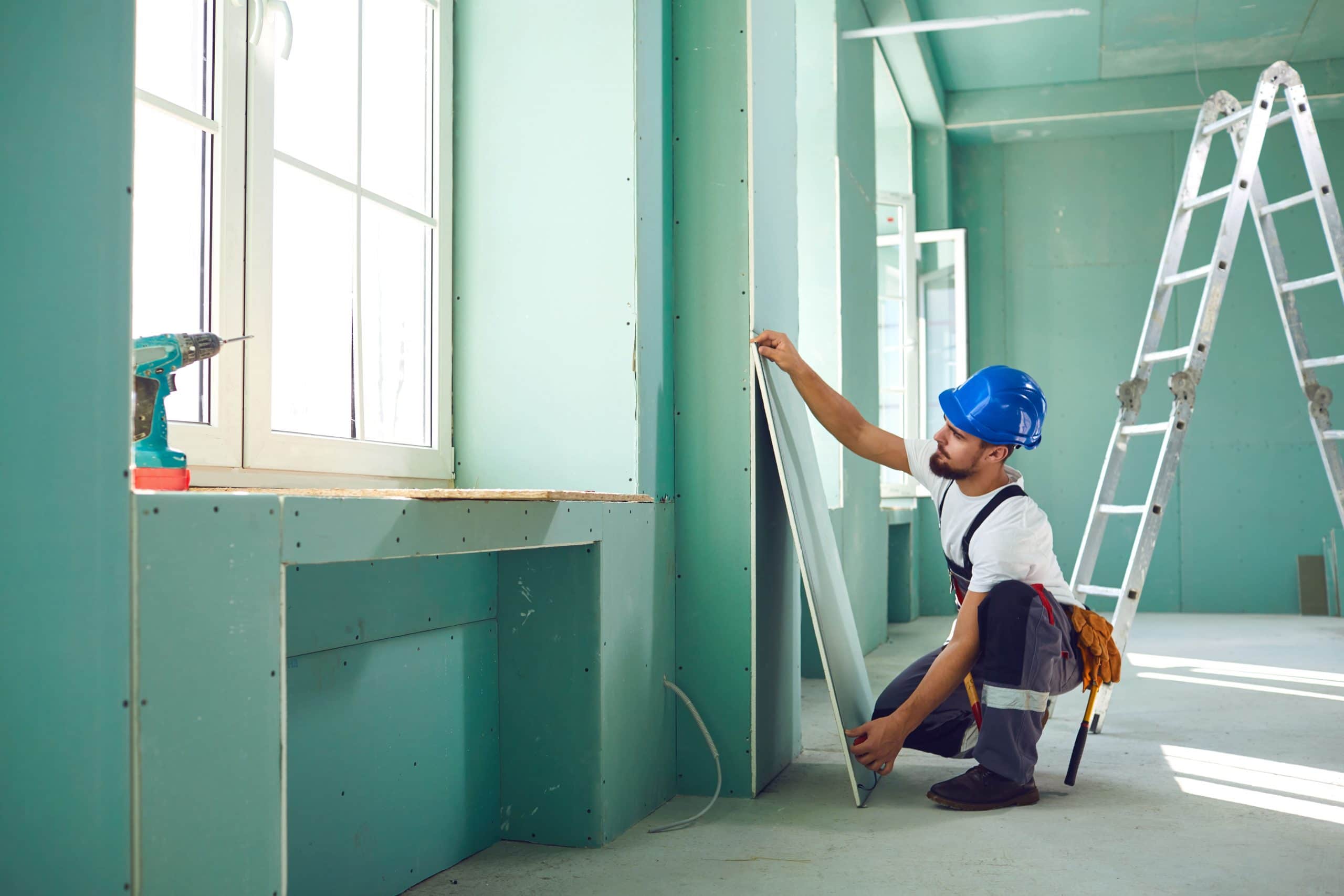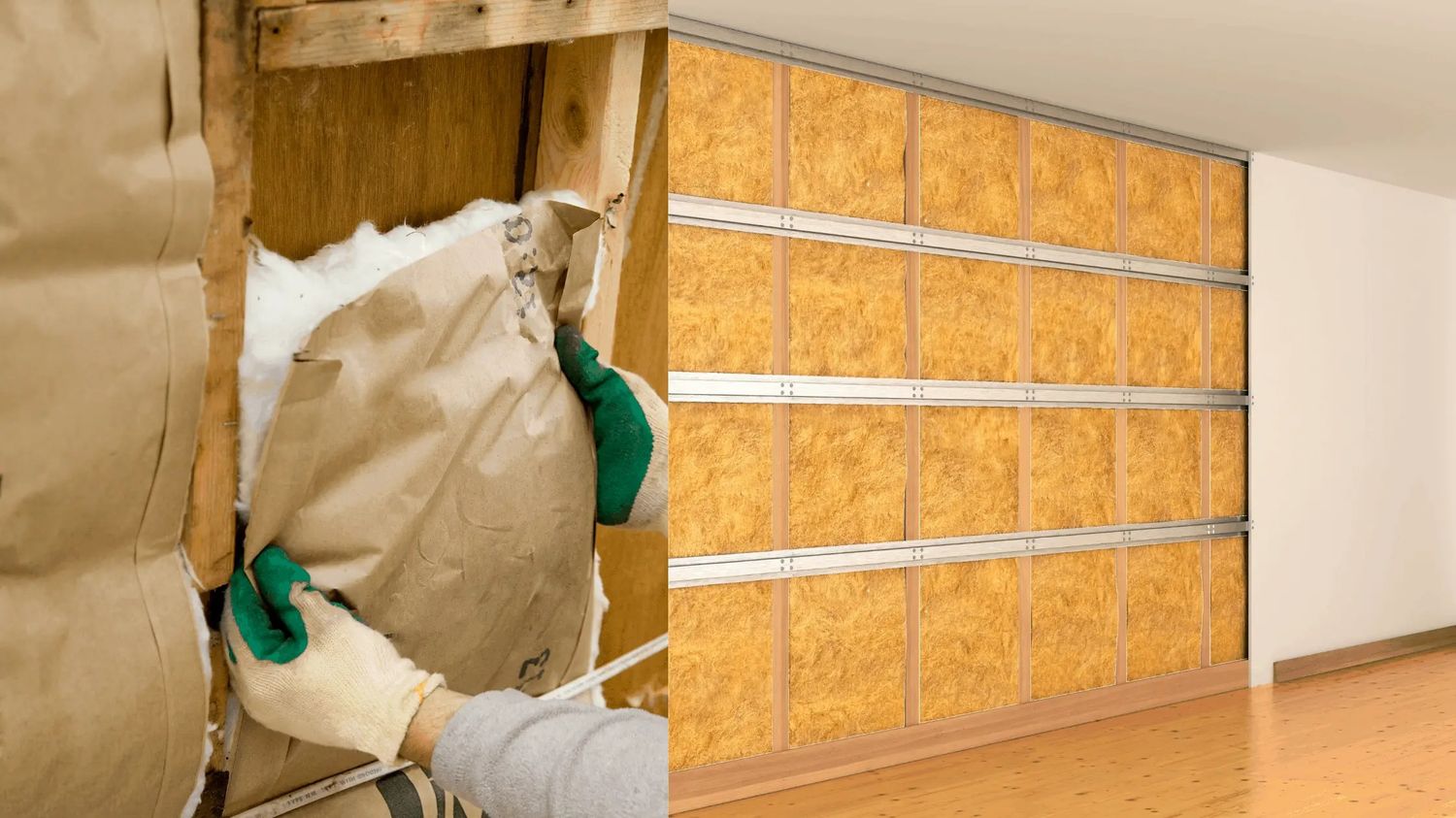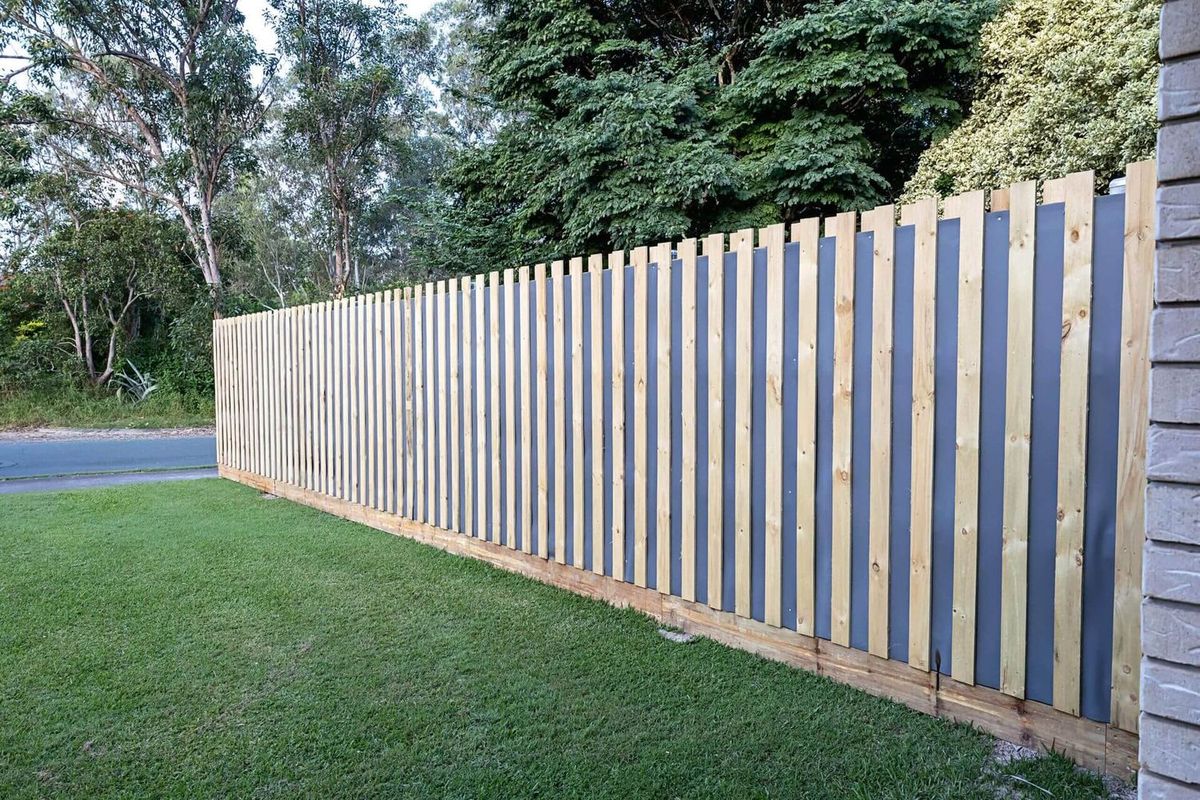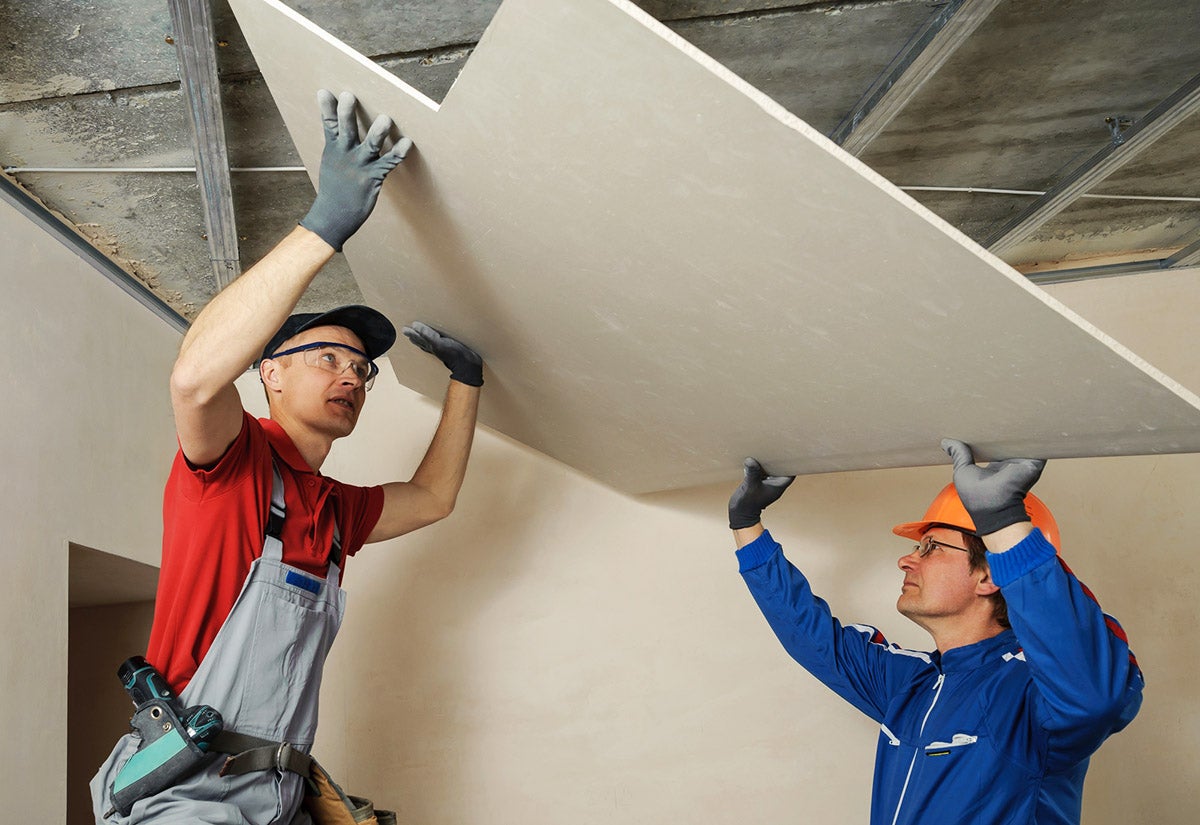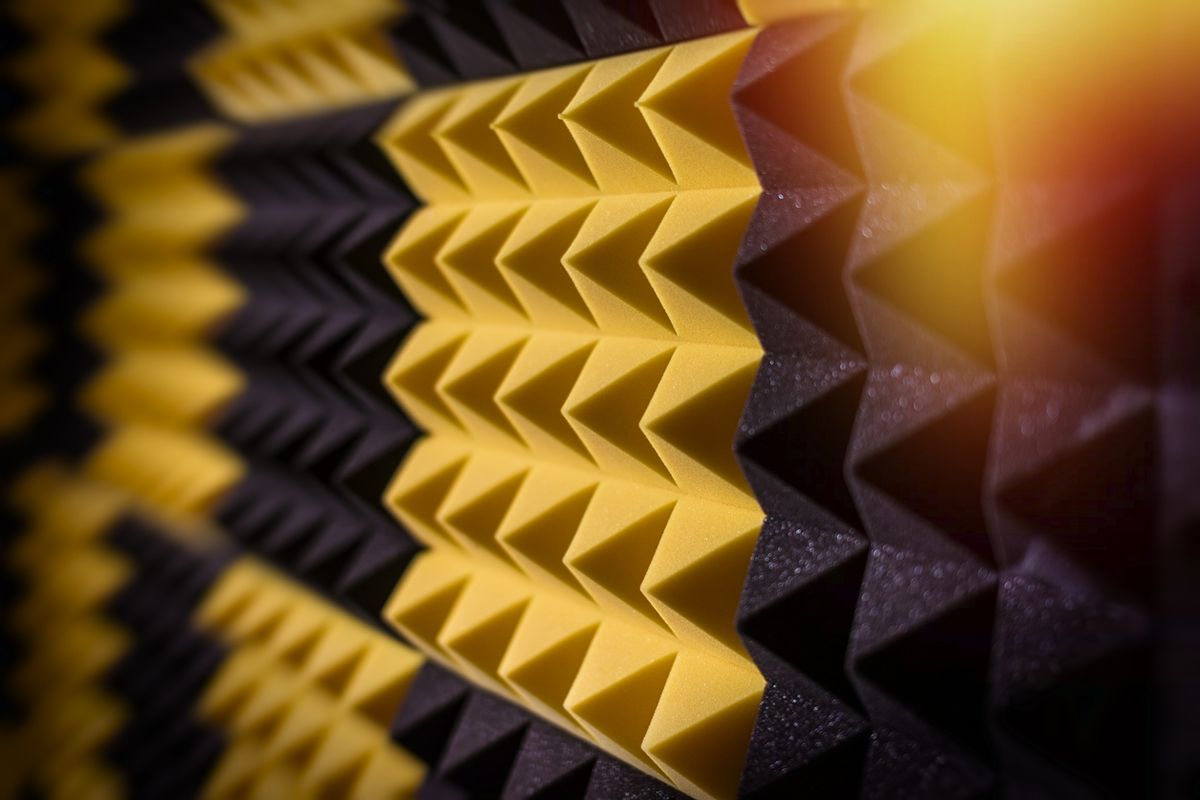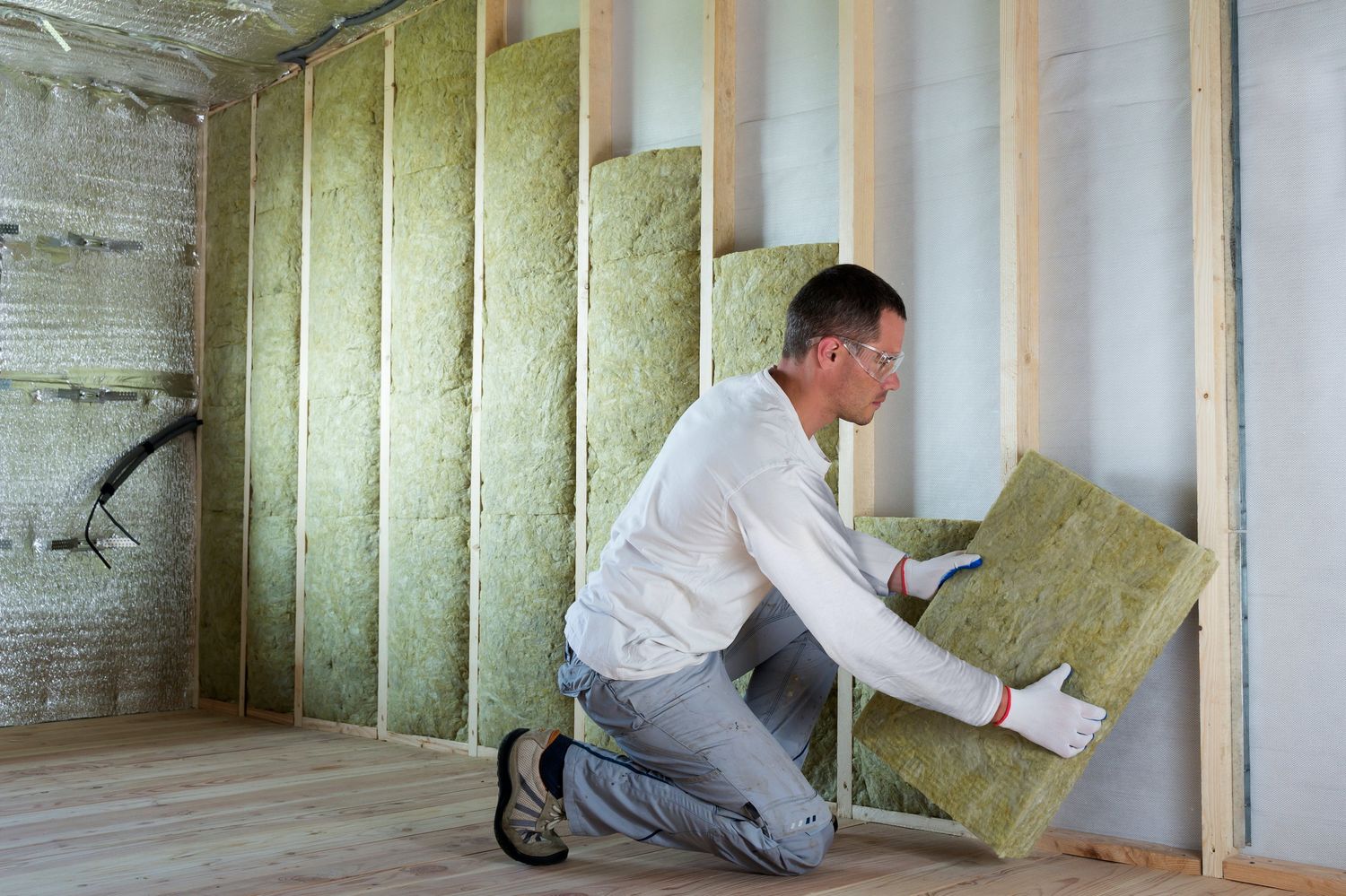Home>Production & Technology>Soundproofing>What Door For Soundproofing
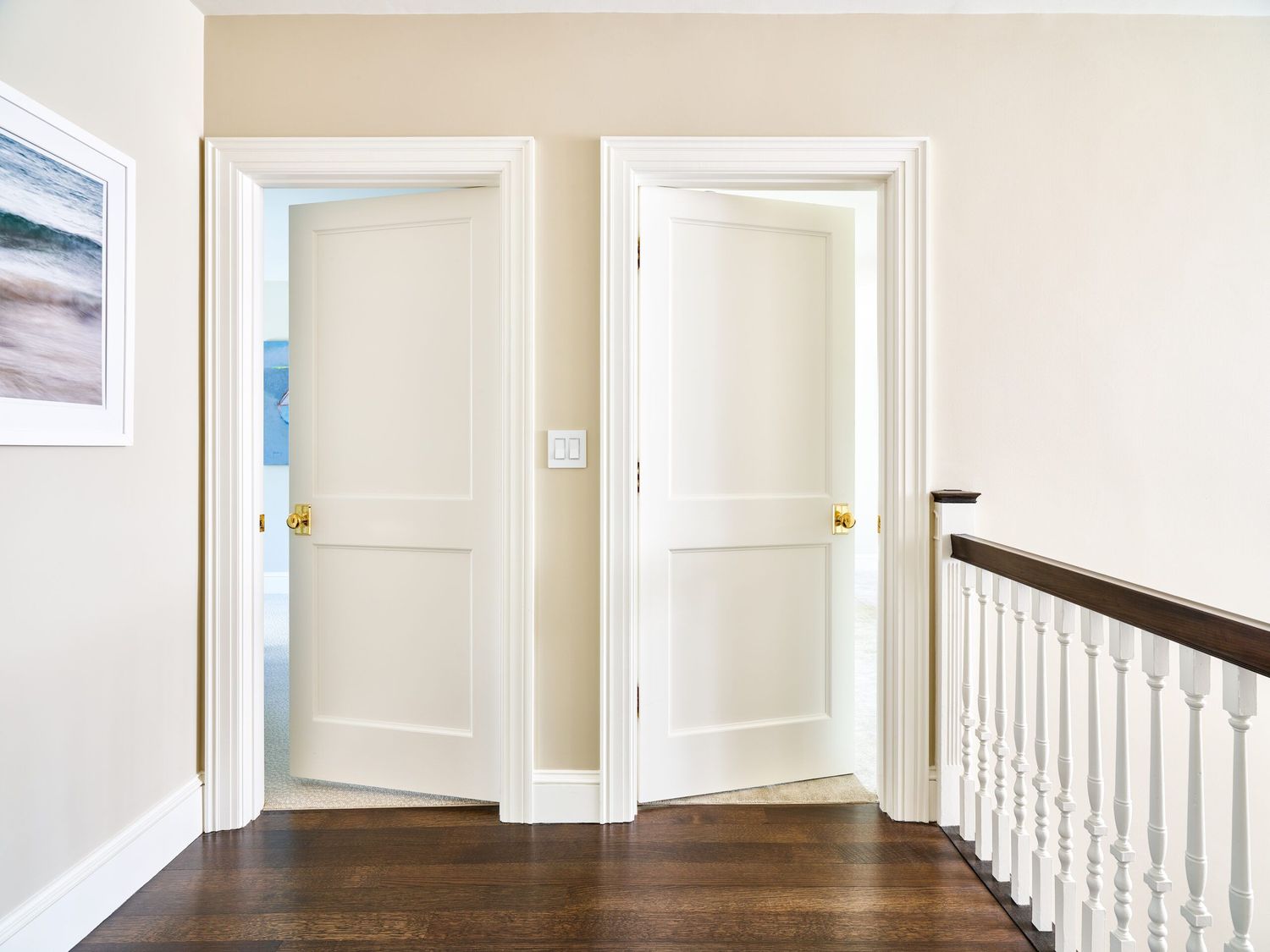

Soundproofing
What Door For Soundproofing
Published: January 26, 2024
Looking to soundproof your door? Discover the best options and techniques for effective soundproofing with our helpful guide.
(Many of the links in this article redirect to a specific reviewed product. Your purchase of these products through affiliate links helps to generate commission for AudioLover.com, at no extra cost. Learn more)
Table of Contents
Introduction
When it comes to creating a quiet and peaceful environment, soundproofing is key. Whether you’re dealing with noisy neighbors, traffic sounds, or a bustling office space, soundproofing can provide you with the tranquility you deserve. While soundproofing the walls and floors is crucial, it’s also important not to overlook the doors.
Doors are one of the main entry points for sound to travel through. If your doors are not adequately soundproofed, the noise from outside can easily seep into your space, disrupting your concentration, sleep, and overall peace of mind. This is where soundproofing doors becomes essential.
Soundproofing doors can significantly reduce the amount of noise that infiltrates your surroundings. By minimizing sound transmission, you can create a more comfortable and enjoyable living or working environment.
In this article, we will discuss the importance of soundproofing doors and explore various options to consider when seeking to soundproof your doors effectively. Whether you’re a homeowner, renter, or business owner, the information presented here will help you make informed decisions to enhance the soundproofing of your space.
Importance of Soundproofing Doors
Soundproofing doors can provide numerous benefits, making them a valuable investment for any space. Here are a few key reasons why soundproofing doors are important:
Noise Reduction: The primary purpose of soundproofing doors is to minimize the amount of noise that passes through. Whether you’re trying to block out street noise, loud conversations, or the blaring sound of a television, soundproof doors can significantly reduce unwanted sounds, leading to a quieter and more peaceful environment.
Privacy: Soundproofing doors also offer increased privacy. Whether you’re holding important meetings in an office or seeking personal relaxation in your home, soundproof doors can prevent conversations and activities from being overheard by others.
Improved Sleep: A quiet and undisturbed sleep is crucial for your overall well-being. Soundproof doors can help create a bedroom environment that is free from external disturbances, ensuring a restful sleep throughout the night.
Enhanced Productivity: If you’re working from home or have a home office, a soundproof door can help create a productive work environment. By blocking out noise distractions, you can concentrate better and accomplish tasks more efficiently.
Protection from External Elements: Soundproof doors not only reduce noise but also act as a barrier against external elements such as dust, drafts, and unwanted odors. This can help maintain a clean and comfortable living or working space.
By understanding the importance of soundproofing doors, you can take proactive steps to create a more peaceful and functional space. Now, let’s explore the factors to consider when soundproofing doors.
Factors to Consider for Soundproofing Doors
When it comes to soundproofing doors, there are several factors to consider to ensure effective noise reduction. These factors will help you choose the right materials and techniques to achieve your desired level of soundproofing. Here are the key factors to keep in mind:
Door Material: The material of the door plays a crucial role in its soundproofing capabilities. Solid core doors are generally more effective at blocking sound compared to hollow core doors. Solid core doors have a denser construction which helps to dampen sound vibrations.
Door Thickness: The thickness of the door is another important consideration. Thicker doors tend to provide better sound insulation compared to thinner doors. Opting for a door with a thickness of at least 1.75 inches can help improve soundproofing.
Seals and Weatherstripping: Proper seals and weatherstripping around the door frame are essential to prevent sound leakage. Soundproof door seals and weatherstripping materials such as rubber or neoprene can effectively seal any gaps and cracks, reducing noise transmission.
Door Frame: In addition to the door itself, the door frame should also be considered. A well-fitted and insulated door frame can help enhance the soundproofing properties of the door. Ensure that the frame is properly sealed and insulated to prevent sound from seeping through the edges.
Gap and Crack Coverage: Identifying and sealing any gaps or cracks around the door is crucial for soundproofing. Sound can easily travel through even the smallest openings, so be diligent in filling these gaps with the appropriate sealant or soundproofing materials.
Aesthetics: While the primary focus is on soundproofing, it’s important to consider the aesthetic aspect as well. Choose a door and soundproofing materials that blend well with the overall design of your space.
By taking these factors into account, you can select the right materials and techniques to effectively soundproof your doors. In the next section, we will explore different types of soundproof door options available in the market.
Types of Soundproof Door Options
When it comes to soundproofing doors, there are various options available to suit different needs and budgets. Here are some of the common types of soundproof door options to consider:
- Solid Core Doors: Solid core doors are made from a solid material throughout, providing better sound insulation compared to hollow core doors. They are denser and heavier, effectively blocking sound transmission. Solid core doors can be a cost-effective solution for soundproofing.
- Acoustic Doors: Acoustic doors are specially designed to provide superior soundproofing by incorporating sound-dampening materials. They are engineered to minimize sound transmission, making them ideal for spaces that require high levels of soundproofing, such as recording studios, theaters, or conference rooms.
- Soundproofing Door Blankets/Curtains: Soundproofing door blankets or curtains offer a flexible and affordable option for soundproofing. These blankets or curtains are made of dense materials that absorb sound waves, reducing noise transmission. They can be easily hung over doors and are particularly useful for temporary soundproofing needs.
- Soundproofing Door Seals and Thresholds: Installing soundproof door seals and thresholds is an effective way to minimize sound leakage around the door edges. These seals and thresholds provide a tight seal and can significantly reduce noise transmission. They are usually made of rubber or neoprene and can be easily installed.
- DIY Soundproofing Solutions: If you’re on a tight budget, there are several DIY soundproofing solutions you can explore. These include adding weatherstripping or foam tape around the door frame, using draft stoppers at the bottom of the door, or applying sound-absorbing panels to the door surface.
Each of these soundproof door options has its own benefits and considerations. The choice will depend on your specific requirements, budget, and the level of soundproofing you desire.
Now that we’ve explored different types of soundproof door options, it’s important to understand the significance of solid core and acoustic doors in the soundproofing process. Let’s delve into these options in the next sections.
Solid Core Doors
Solid core doors are an excellent choice for soundproofing purposes, offering improved insulation and noise reduction compared to hollow core doors. These doors are constructed with a solid material core, typically made of engineered wood or a composite material like particleboard or MDF (medium-density fiberboard).
The dense construction of solid core doors helps to dampen sound vibrations, making them more effective at blocking noise compared to hollow core doors. The solid core acts as a barrier, minimizing the amount of sound that can pass through the door.
In addition to their soundproofing capabilities, solid core doors offer other advantages as well. They are more durable and resistant to warping than hollow core doors, making them a favorable choice for high-traffic areas or spaces that require added security.
When selecting solid core doors for soundproofing, it’s important to consider the door thickness. Thicker doors provide better sound insulation, so choosing a door with a thickness of at least 1.75 inches is recommended.
It’s worth noting that while solid core doors offer improved soundproofing compared to hollow core doors, they might not provide the same level of acoustic performance as specialized acoustic doors. If you require a high level of soundproofing, particularly in areas with extreme noise conditions or specific noise-sensitive applications like recording studios or home theaters, acoustic doors may be a more suitable choice.
Overall, solid core doors are a cost-effective option for soundproofing residential and commercial spaces. Their ability to reduce noise transmission and provide durability makes them a popular choice for those seeking to create a quieter and more peaceful environment.
In the next section, we will explore the benefits of acoustic doors and how they can further enhance soundproofing.
Acoustic Doors
Acoustic doors are specifically designed to provide exceptional soundproofing capabilities, making them an ideal choice for spaces that require high levels of noise reduction. These doors are engineered to minimize sound transmission and are commonly used in environments where sound control is critical, such as recording studios, theaters, concert halls, and conference rooms.
One of the key features of acoustic doors is their construction. They are made with multiple layers of sound-dampening materials, such as high-density fiberboard (HDF), special sound-absorbing cores, and heavy-duty gaskets. These layers work together to absorb and block sound waves, significantly reducing noise transmission.
Acoustic doors are designed to have an airtight seal, which is crucial for preventing sound leakage. They feature specialized seals and gaskets around the edges to ensure a tight fit when the door is closed. The seals help to eliminate gaps and cracks that can allow sound to escape or enter the room.
Another important aspect of acoustic doors is their weight. These doors are typically heavier than standard doors, which further enhances their soundproofing capabilities. The added weight helps to dampen vibrations and prevents sound from traveling through the door.
While acoustic doors are highly effective in blocking noise, they also offer other advantages. They provide excellent thermal insulation, helping to maintain a comfortable indoor temperature and reduce energy costs. Acoustic doors are also durable and long-lasting, designed to withstand heavy use and maintain their soundproofing properties over time.
It’s important to note that acoustic doors can be more expensive than other soundproofing door options due to their specialized construction and materials. However, if you require a high level of soundproofing or have specific noise control needs, the investment in an acoustic door can be well worth it.
Overall, acoustic doors are the go-to choice for spaces that demand exceptional noise reduction, offering superior soundproofing properties, durability, and thermal insulation. In the next section, we will discuss another crucial aspect of soundproofing doors – the importance of door seals and thresholds.
Soundproofing Door Seals and Thresholds
When it comes to achieving effective soundproofing, the importance of door seals and thresholds cannot be overstated. These components play a crucial role in preventing sound leakage and ensuring a tight seal around the door.
Soundproof door seals and thresholds are designed to fill the gaps and cracks around the door frame, preventing sound from escaping or entering the room. They are typically made of materials like rubber or neoprene, which provide excellent acoustic insulation.
There are a few key areas where soundproofing door seals and thresholds are commonly used:
- Door Jamb Seals: These seals are installed along the sides and top of the door frame, creating a tight seal when the door is closed. They help to eliminate any gaps between the door and the frame, preventing sound from seeping through.
- Door Sweep: A door sweep is a seal that is attached to the bottom of the door. It acts as a barrier against sound, drafts, and even pests. Door sweeps can be made of rubber or brush-like materials, effectively sealing the gap between the door and the floor.
- Thresholds: Thresholds are installed on the floor beneath the door. They provide a smooth transition from one room to another while also preventing sound leakage. Soundproof thresholds are designed to create a tight seal, blocking sound from passing through the space under the door.
Installing soundproofing door seals and thresholds is relatively simple and can be done as a DIY project. They are available in different sizes and can be easily cut to fit the dimensions of your door frame. Additionally, some door manufacturers offer pre-installed seals and thresholds as an option for their doors.
By properly installing soundproof door seals and thresholds, you can significantly enhance the soundproofing capabilities of your door. They are an essential component in creating a barrier against noise and ensuring a quieter and more comfortable environment.
In addition to specialized door seals and thresholds, there are also other DIY soundproofing solutions that can be effective. In the next section, we will explore some of these options for those on a budget or looking for temporary soundproofing solutions.
DIY Soundproofing Solutions for Doors
If you’re on a budget or looking for temporary soundproofing solutions, there are several DIY options that can effectively reduce noise transmission through doors. These solutions can be implemented easily and are ideal for renters or those who don’t want to make permanent modifications to their doors. Here are some DIY soundproofing solutions for doors:
- Weatherstripping: Adding weatherstripping around the door frame is a simple and cost-effective way to reduce sound leakage. Weatherstripping materials such as adhesive-backed foam tapes or V-strips can be applied to seal any gaps between the door and the frame.
- Draft Stoppers: Placing draft stoppers or door snakes at the bottom of the door can help block sound from entering or escaping through the gap between the door and the floor. These can be made from fabric and filled with materials like rice or sand.
- Sound-absorbing Panels: Applying sound-absorbing panels to the surface of the door can help reduce echo and absorb sound waves, minimizing noise transmission. These panels can be made from acoustic foam or other sound-absorbing materials.
- Bookcase/Storage Unit: Placing a bookcase or a storage unit against the door can serve as an effective barrier against sound. The additional layer of furniture can help block and absorb noise, acting as a makeshift soundproofing solution.
- Rugs or Curtains: Hanging thick rugs or heavy curtains over the door can help reduce sound transmission. These materials can absorb sound waves and create a barrier, providing some level of soundproofing.
While DIY soundproofing solutions may not offer the same level of sound reduction as specialized soundproof doors or professional installations, they can still make a significant difference in reducing noise. These DIY options are flexible, affordable, and easy to implement, making them suitable for those with budgetary constraints or temporary soundproofing needs.
It’s important to note that the effectiveness of DIY soundproofing solutions may vary depending on the door and noise conditions. Experimenting with different methods and combining multiple solutions can yield better results. Additionally, always ensure that the DIY solutions you choose do not interfere with the smooth operation of the door or compromise safety measures.
Now that we have explored various soundproofing door options and DIY solutions, let’s conclude our article.
Conclusion
Soundproofing doors is an essential aspect of creating a quiet and peaceful environment. By minimizing noise transmission through doors, you can enjoy a more serene living or working space free from the disturbances of external sounds.
We discussed the importance of soundproofing doors, highlighting how it can improve privacy, enhance sleep quality, and boost productivity. We also explored the factors to consider when soundproofing doors, including the door material, thickness, seals, and gaps coverage.
There are various soundproof door options available, including solid core doors and acoustic doors. Solid core doors provide a cost-effective solution with improved insulation and noise reduction, while acoustic doors offer specialized construction for exceptional soundproofing needs.
Door seals and thresholds play a crucial role in preventing sound leakage around the door. Installing soundproofing seals and thresholds helps create a tight seal, minimizing sound transmission through gaps and cracks in the door frame.
If you’re on a budget or looking for temporary solutions, DIY soundproofing options such as weatherstripping, draft stoppers, sound-absorbing panels, or furniture placement can make a noticeable difference in reducing noise transmission through doors.
Ultimately, the choice of soundproofing door options will depend on your specific needs, budget, and level of soundproofing required. It’s important to consider factors such as noise levels, room usage, and aesthetic preferences when selecting the right approach.
By implementing soundproofing measures for doors, you can create a more tranquil and enjoyable environment, whether it’s at home, in the office, or in any other space where noise reduction is desired.
Remember, soundproofing doors is an investment in your well-being and quality of life. So, take the necessary steps to soundproof your doors and enjoy the benefits of a quieter and more peaceful space.

